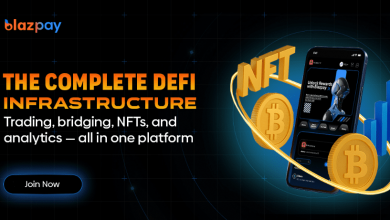Top Fintech Innovations in Fintech Lending Platforms Across Belgium

The financial technology (fintech) sector in Belgium has experienced rapid growth, especially in lending platforms. These innovations are transforming how businesses and individuals access credit, making the process faster, more transparent, and highly efficient. From AI-driven underwriting to blockchain-based loan management, these advancements are reshaping the financial space.
Artificial Intelligence and Machine Learning in Credit Scoring
Traditional credit scoring methods often rely on outdated financial histories. However, Belgian fintech lenders now leverage AI and machine learning to assess creditworthiness more accurately.
By analyzing vast datasets—including transaction histories, social media activity, and spending patterns—these systems predict risk with greater precision. For instance, platforms like KBC’s Bolero and Bunq use AI to offer personalized loan terms. Additionally, AI reduces human bias in lending decisions. This ensures fairer access to credit, especially for freelancers and small businesses that may lack extensive financial records.
Blockchain for Secure and Transparent Loan Processing
Blockchain technology is revolutionizing fintech lending by enhancing security and transparency. In Belgium, several platforms now use blockchain to record loan agreements, ensuring tamper-proof documentation.
Smart contracts automate repayments, reducing delays and disputes. For example, Banksys and European lending startups integrate blockchain to streamline loan disbursements. Borrowers benefit from faster approvals, while lenders enjoy reduced fraud risks.
Moreover, decentralized finance (DeFi) platforms are gaining traction. These allow peer-to-peer lending without intermediaries, lowering costs for both borrowers and investors.
Open Banking and API-Driven Lending Solutions
Belgium’s adoption of open banking has unlocked new lending possibilities. Thanks to PSD2 regulations, fintech firms can access bank data (with user consent) to assess creditworthiness in real time.
Platforms like Argenta and Keytrade Bank use APIs to fetch financial data instantly. This speeds up loan approvals—sometimes within minutes. Borrowers no longer need to submit piles of paperwork, making the process seamless. Open banking also enables dynamic credit limits. Lenders adjust offers based on real-time cash flow, helping businesses manage liquidity more effectively.
Buy Now, Pay Later (BNPL) Services Gaining Popularity
The BNPL model has exploded in Belgium, offering consumers flexible payment options. Companies like Klarna and Scalapay partner with local retailers to provide interest-free installments.
Unlike traditional loans, BNPL requires no lengthy approval processes. Shoppers split payments into manageable chunks, improving affordability. For merchants, this boosts sales by reducing cart abandonment rates.
However, regulators are scrutinizing BNPL to prevent over-indebtedness. Responsible lending practices remain crucial as this trend grows.
Peer-to-Peer (P2P) Lending Platforms Democratizing Finance
P2P lending connects borrowers directly with investors, bypassing traditional banks. In Belgium, platforms like Look&Fin and LendSecured facilitate business and personal loans with competitive rates.
Investors earn higher returns compared to savings accounts, while borrowers access funds quickly. Advanced risk-assessment tools ensure balanced opportunities for both parties.
This model supports SME financing, a critical need in Belgium’s economy. With banks tightening lending criteria, P2P platforms fill a vital gap.
Digital-Only Neobanks Offering Seamless Loan Experiences
Neobanks like Revolut and N26 have entered Belgium’s lending space with digital-first solutions. These banks provide instant microloans, overdrafts, and business credit lines via mobile apps.
Since they operate without physical branches, overhead costs are lower. This allows them to offer better rates than traditional banks. Additionally, their user-friendly interfaces attract tech-savvy consumers. With features like spending analytics, borrowers can make informed financial decisions before applying for credit.
Automated Underwriting for Faster Loan Approvals
Manual underwriting is time-consuming and prone to errors. Belgian fintech lenders now use automated underwriting systems to process applications in minutes.
These systems analyze credit scores, income statements, and debt-to-income ratios instantly. As a result, borrowers receive decisions without long waiting periods. Companies like Aion Bank utilize automation to enhance efficiency. This is particularly beneficial for small businesses needing urgent working capital.
Green Financing and Sustainable Lending Initiatives
Sustainability is a growing priority in Belgium’s financial sector. Fintech lenders now offer green loans for eco-friendly projects, such as solar panel installations and energy-efficient upgrades.
Platforms like Triodos Bank specialize in ethical lending, supporting businesses with positive environmental impacts. Borrowers benefit from lower interest rates if they meet sustainability criteria. This trend aligns with Belgium’s commitment to carbon neutrality, encouraging more eco-conscious borrowing.
Embedded Lending: Loans Within E-Commerce Platforms
Embedded lending integrates financing options directly into online stores. At checkout, customers can apply for loans without leaving the merchant’s website.
Belgian fintech firms collaborate with e-commerce platforms to offer this feature. For example, PayPal Credit and Shopify Capital provide instant financing, boosting conversion rates for sellers. This innovation simplifies access to credit, making it a seamless part of the shopping experience.
Regulatory Sandbox Encouraging Fintech Experimentation
Belgium’s Financial Services and Markets Authority (FSMA) supports innovation through regulatory sandboxes. These allow fintech startups to test new lending models in a controlled environment.
By easing compliance burdens, the sandbox fosters faster product development. This has led to breakthroughs in AI-driven lending, blockchain loans, and more. Such initiatives ensure Belgium remains a leader in fintech innovation while protecting consumers.
Conclusion
Belgium’s fintech lending sector is evolving rapidly, driven by AI, blockchain, and open banking. These innovations make borrowing more accessible, efficient, and secure. Furthermore. we can expect even more breakthroughs—such as AI-powered chatbots for loan applications and cross-border lending solutions. For now, businesses and consumers in Belgium enjoy unparalleled convenience in securing credit. The future of lending is digital, and Belgium is at the forefront of this transformation.

Source: Top Fintech Innovations in Fintech Lending Platforms Across Belgium



